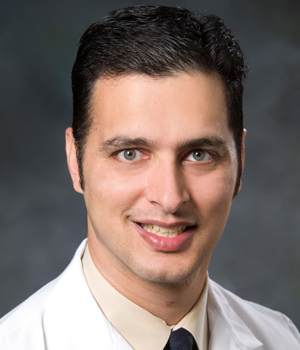Saint Luke’s News: Artificial intelligence now helping doctors treat common heart condition at Saint Luke’s
Doctors across Saint Luke’s Health System have a new way to easily identify the best treatment for patients with the most common heart rhythm disorder.
It’s through the help of artificial intelligence.
About 2% of the entire population has atrial fibrillation (AFib)—that’s up to 6.5 million people in the U.S. alone. AFib is an irregular heartbeat that leads to poor heart function and affects how much blood the heart pumps out to the body.
“The biggest risk with atrial fibrillation is that it can lead to the development of stroke,” said Dr. Sanjaya Gupta, a cardiologist at Saint Luke’s Mid America Heart Institute. “It allows blood to pool in the heart and cause clots, which can go to the brain. That’s the cause of one-third of all strokes we know about, and many of those can be fatal or disabling.”
That risk significantly drops if a person takes blood thinners to prevent clots. But not everyone with AFib is aware that they need blood thinners or is a good fit. And still others may be hesitant to take the medication.
That’s why Dr. Gupta came up with a new way of using an algorithm to identify all AFib patients in the health system who can benefit from blood thinners and who meet the right criteria. It then calculates the patient’s risk score of having a stroke and automatically alerts the doctor, recommending proper treatment options when he or she comes in for a visit.
“With this we can say to our patients, your risk of stroke on a blood thinner is this. Your risk of stroke off a blood thinner is this,” Dr. Gupta said. “So then, they can weigh the risk-benefit and say, ‘Gosh, I’m at a pretty high risk for stroke, I better start on a blood thinner.’”
The new algorithm at Saint Luke’s is the first in the country to calculate the risk and alert doctors in the patient’s medical record automatically without being prompted, closing gaps in care. After testing it among cardiologists, Saint Luke's rolled out the new algorithm system-wide in January, making it available to all primary care doctors as well.
“Just like GPS, this artificial intelligence is used as a guide that can help us be more safe and more efficient—it’s not going to take over,” Dr. Gupta said. “It helps us take care of patients. And as medicine is getting more complex, it’s good to have these tools to help us out.”
The healthcare software company Saint Luke's uses, called EPIC, is set to implement Dr. Gupta’s algorithm in all hospitals using its software to help millions of patients nationwide.
Dr. Gupta hopes to someday expand the same model to help doctors identify risk and recommend best treatment for other medical conditions as well.
“It’s pretty neat to see something we started at Saint Luke’s on a national scale,” Dr. Gupta said. “With this, we are identifying gaps in healthcare and closing those gaps to improve care for everyone.”
Learn more about atrial fibrillation and treatment options or contact Saint Luke’s Cardiovascular Consultants to set up an appointment.
